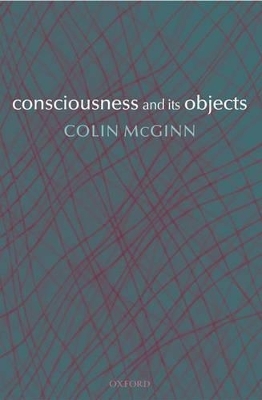
Consciousness and its Objects
Seiten
2004
Oxford University Press (Verlag)
978-0-19-926760-6 (ISBN)
Oxford University Press (Verlag)
978-0-19-926760-6 (ISBN)
Colin McGinn presents his work on consciousness in ten interlinked essays, four of them previously unpublished. He extends and deepens his controversial solution to the mind-body problem, defending the view that consciousness is both ontologically unproblematic and epistemologically impenetrable.
Colin McGinn presents his latest work on consciousness in ten interlinked essays, four of them previously unpublished. He extends and deepens his controversial solution to the mind-body problem, defending the view that consciousness is both ontologically unproblematic and epistemologically impenetrable. He also investigates the basis of our knowledge that there is a mind-body problem, and the bearing of this on attempted solutions.
McGinn goes on to discuss the status of first-person authority, the possibility of atomism with respect to consciousness, extreme dualism, and the role of non-existent objects in constituting intentionality. He argues that traditional claims about our knowledge of our own mind and of the external world can be inverted; that atomism about the conscious mind might turn out to be true; that dualism is more credible the more extreme it is; and that all intentionality involves non-existent objects. These are all surprising positions, but he contends that what the philosophy of mind needs now is 'methodological radicalism' - a willingness to consider new and seemingly extravagant ideas.
Colin McGinn presents his latest work on consciousness in ten interlinked essays, four of them previously unpublished. He extends and deepens his controversial solution to the mind-body problem, defending the view that consciousness is both ontologically unproblematic and epistemologically impenetrable. He also investigates the basis of our knowledge that there is a mind-body problem, and the bearing of this on attempted solutions.
McGinn goes on to discuss the status of first-person authority, the possibility of atomism with respect to consciousness, extreme dualism, and the role of non-existent objects in constituting intentionality. He argues that traditional claims about our knowledge of our own mind and of the external world can be inverted; that atomism about the conscious mind might turn out to be true; that dualism is more credible the more extreme it is; and that all intentionality involves non-existent objects. These are all surprising positions, but he contends that what the philosophy of mind needs now is 'methodological radicalism' - a willingness to consider new and seemingly extravagant ideas.
Introduction ; 1. What Constitutes the Mind-Body Problem? ; 2. How Not to Solve the Mind-Body Problem ; 3. Solving the Philosophical Mind-Body Problem ; 4. What Is It Not Like to be a Brain? ; 5. Consciousness and Space ; 6. Consciousness, Atomism, and the Ancient Greeks ; 7. Consciousness and Cosmology: Hyperdualism Ventilated ; 8. The Problem of Philosophy ; 9. Inverted First-Person Authority ; 10. The Objects of Intentionality
| Erscheint lt. Verlag | 25.3.2004 |
|---|---|
| Verlagsort | Oxford |
| Sprache | englisch |
| Maße | 140 x 211 mm |
| Gewicht | 413 g |
| Themenwelt | Geisteswissenschaften ► Philosophie |
| Geisteswissenschaften ► Psychologie ► Biopsychologie / Neurowissenschaften | |
| ISBN-10 | 0-19-926760-X / 019926760X |
| ISBN-13 | 978-0-19-926760-6 / 9780199267606 |
| Zustand | Neuware |
| Informationen gemäß Produktsicherheitsverordnung (GPSR) | |
| Haben Sie eine Frage zum Produkt? |
Mehr entdecken
aus dem Bereich
aus dem Bereich
Grundlagen, Klinik, Rehabilitation
Buch | Softcover (2024)
Urban & Fischer in Elsevier (Verlag)
56,00 €
Buch | Spiralbindung (2022)
modernes lernen (Verlag)
29,95 €
Grundlagen, Klinik, Therapie und Verlauf der …
Buch | Softcover (2024)
Kohlhammer (Verlag)
84,00 €


